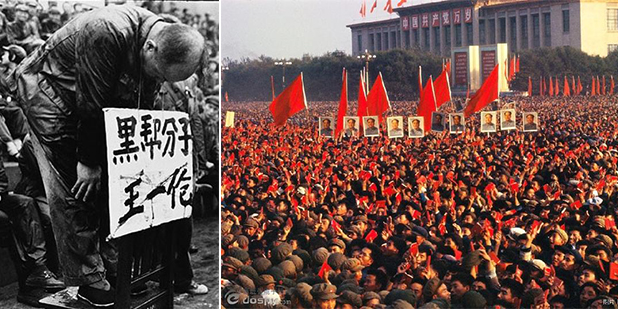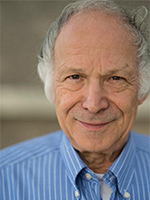
The USC U.S. - China Institute and the National Consortium for Teaching about Asia (NCTA) are offering a complimentary one-day workshop, Remembering the Cultural Revolution, for all K-12 educators. The session will meet at USC on Saturday, March 25, from 9am to 3:30pm. Complimentary on-campus parking, breakfast, and lunch will be provided.
China’s Cultural Revolution is widely considered the most traumatic of the political movements that defined Maoist China. No corner of China and no aspect of life was untouched. When the fiftieth anniversary of its beginning passed last May, the party-state barely acknowledged it. Outside of China there was immense attention to it. Conventionally dated from 1966 to 1976, what was the Cultural Revolution? How was it experienced by people of different occupations and status and different regions? What was its political, social, economic, and cultural impact? Did the Communist Party’s official verdict on the Cultural Revolution settle everything? What is the Cultural Revolution’s legacy?
Our presenters include Sidney Rittenberg and Yulin Wang, two Chinese Communist Party members who joined the movement and subsequently suffered during it and whose memoirs are valuable resources, Guobin Yang, a sociologist whose most recent book is The Red Guard Generation and Political Activism in China, and Stanley Rosen, a political scientist and Chinese film specialist who is also author of Red Guard Factionalism and the Cultural Revolution in Guangzhou, and Clayton Dube, USCI director.
Speakers

Sidney Rittenberg arrived in China as a GI Chinese language expert at the end of World War II. Discharged there, he joined the Chinese Communist Party, and was an active participant in the Chinese communist revolution and its aftermath. But in the convulsions of a giant country constantly reinventing itself, he twice ran afoul of the leadership, and served a total of 16 years in solitary confinement. He returned to the United States in 1980.
 Yulin Wang Rittenberg was working at Radio Peking when she met her husband, Sidney Rittenberg. She and her children suffered persecution when he was imprisoned on false charges of spying. Now in her 80s and retired in the U.S., Yulin reflects on the tumultuous years of the Cultural Revolution and what she learned from her personal trauma in her book, After The Bitter Comes The Sweet.
Yulin Wang Rittenberg was working at Radio Peking when she met her husband, Sidney Rittenberg. She and her children suffered persecution when he was imprisoned on false charges of spying. Now in her 80s and retired in the U.S., Yulin reflects on the tumultuous years of the Cultural Revolution and what she learned from her personal trauma in her book, After The Bitter Comes The Sweet.
 Guobin Yang is Professor of Communication and Sociology at the Annenberg School for Communication and Department of Sociology at the University of Pennsylvania. His research areas cover digital media and critical social theory, global communication, social movements, activist media, cultural sociology, and media and politics in China.
Guobin Yang is Professor of Communication and Sociology at the Annenberg School for Communication and Department of Sociology at the University of Pennsylvania. His research areas cover digital media and critical social theory, global communication, social movements, activist media, cultural sociology, and media and politics in China.
 Stanley Rosen teaches political science, specializing in Chinese politics and society, at USC. He studied Chinese in Taiwan and Hong Kong and has traveled to mainland China over 50 times in the last 34 years. His courses range from Chinese politics and Chinese film to political change in Asia, East Asian societies, comparative politics, and politics and film in comparative perspective.
Stanley Rosen teaches political science, specializing in Chinese politics and society, at USC. He studied Chinese in Taiwan and Hong Kong and has traveled to mainland China over 50 times in the last 34 years. His courses range from Chinese politics and Chinese film to political change in Asia, East Asian societies, comparative politics, and politics and film in comparative perspective.
 Clayton Dube has headed the USC U.S.-China Institute since it was established by USC President C.L. Nikias in 2006 to focus on the multidimensional U.S.-China relationship.
Clayton Dube has headed the USC U.S.-China Institute since it was established by USC President C.L. Nikias in 2006 to focus on the multidimensional U.S.-China relationship.
REGISTRATION DEADLINE: 5pm on Wednesday, March 22
QUESTIONS? CONTACT
asiak12@usc.edu or 213-821-4382
